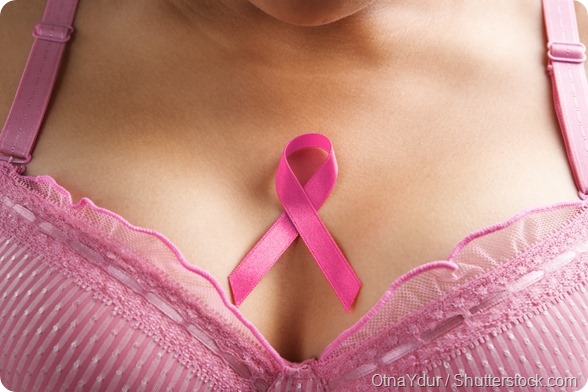It's official, you can wear a bra without increasing your risk of developing breast cancer.
Despite there being no scientifically valid data indicating that wearing a bra causes cancer, there have been widespread rumours to the contrary. They were started in 1995 by the book “Dressed to Kill: The Link Between Breast Cancer and Bras,” The authors suggested that the increased risk of breast cancer in Western cultures compared with indigenous cultures was due to wearing bras. However, the research methodology was criticized for having a range of design flaws, including not adjusting for known breast cancer risks such as weight and age, but Western women continued to worry.
Such myths, however, have just been dispelled by a recent population-based study conducted by the Fred Hutchinson Cancer Research Center.

Information relating to bra use was collected from more than 1,000 postmenopausal women who were diagnosed with invasive breast cancer and over 450 women aged 55 to 74 years who had not developed breast cancer. In face-face interviews, the women were asked about age, race, weight, family history of cancer, reproductive history, and lifetime patterns of bra use.
The data were then analysed to see whether there was any correlation between bra-wearing habits and developing breast cancer. There was no association between wearing a bra and developing breast cancer.
The lead author, Lu Chen commented “Our study found no evidence that wearing a bra increases a woman’s risk for breast cancer. The risk was similar no matter how many hours per day women wore a bra, whether they wore a bra with underwire, or at what age they began wearing a bra.”
Dr Ted Gansler, director of medical content for the ACS, praised the Fred Hutchinson Cancer Research Center for conducting a rigorous analysis to dispel the harmful myths about bra-wearing. He explained that such rumours cause unnecessary anxiety among women who do not have a personal history of breast cancer and guilt among women who have been diagnosed with breast cancer, distracting them from known preventative measures and treatments.
“Their use of sophisticated statistical methods relieves potential concerns regarding influence of other factors obscuring or distorting a potential connection between bras and breast cancer.”
The latest study should reassure women that there is no reason to worry about developing breast cancer as a consequence of wearing a bra.